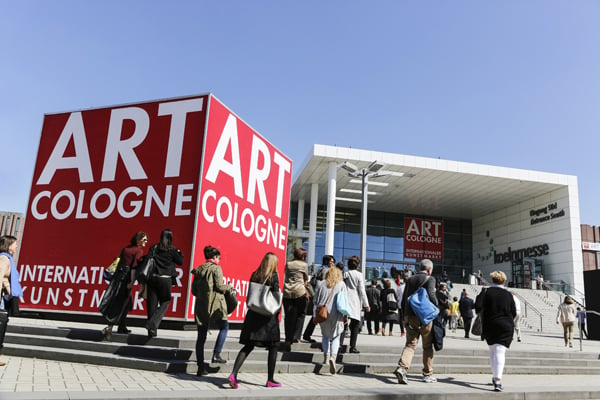Art Fairs
Art Cologne Slams Germany’s Art Protection Law
Art fairs have now joined the growing list of critics.

Photo: Koelnmesse
Art fairs have now joined the growing list of critics.

Henri Neuendorf

Koelnmesse, the organizers behind the German art fairs Art Cologne and Cologne Fine Art have written an open letter expressing their opposition to the amendment of Germany’s cultural protection act.
“If the current version of the draft is passed, not only will galleries, art dealers, auction houses, private collectors, and museums be negatively affected, but also the entire German art fair landscape,” Gerald Böse, CEO of Koelnmesse said.
“The impending export ban of artworks classified as ‘national patrimony’ and the appraisal process carried out by the authorities will massively restrict the art trade in Germany, and thus the art fairs as an independent platform for the trade of art,” he added.

German Culture Minister Monika Grütters (2009)
Photo: monika-gruetters.de
The legislative changes which have been massively criticized by everyone from artists, to galleries, dealers, museums, collectors, and now, art fairs, aim to regulate the export of nationally significant artworks, facilitate the repatriation of foreign and illicit cultural goods, and protect against the trade in illicit artifacts.
The section of the current draft that nearly everyone involved in the German art market takes issue with is the requirement of individual artworks older than 70 years or valued over €300,000 to undergo a government appraisal process before they may be exported to another European country.
According to Böse, “Many of our exhibitors view the latest developments as a serious risk to their business. In the long run, German art fairs will no longer be competitive in comparison to their international counterparts.”
Meanwhile, commentators in Germany have noted the increase in the number of works by German impressionists and expressionists that are finding their way to foreign auction houses, and speculate whether this is a measure taken by German collectors ahead of the law’s implementation.
Furthermore, as the open letter asserts, the proposed draft law would require more stringent due diligence, documentation, and disclosure obligations, as well as provenance guarantees.

Gerald Böse, CEO of Koelnmesse, sharply criticized the government’s measures.
Photo: Koelnmesse Blog
The extent of the required bureaucracy would make it impossible for market segments dealing in the fields of Tribal, Asian, and ancient art to operate effectively due to the significant administrative burden, Koelnmesse point out.
The letter stresses that the authorities will demand such information not only from dealers and galleries, but also from private collectors and individuals for all exports regardless of whether they relocate abroad, loan an artwork for an exhibition, or sell.
For individuals without the legal know-how, the paperwork and bureaucracy envisaged by the proposed broadening of the legal framework could prove unmanageable. The associated legal fees add another signifiant cost to the maintenance of an art collection.
While Koelnmesse—which opens the 50th edition of Art Cologne in April—said the it “Welcomes the intention to prevent the illegal trade in cultural property,” it called on German culture minister Monika Grütters and the relevant minister of North Rhine-Westphalia, Christina Kampmann, to “carefully examine the bill and its implications for German art fairs and the cultural destination of Germany.”